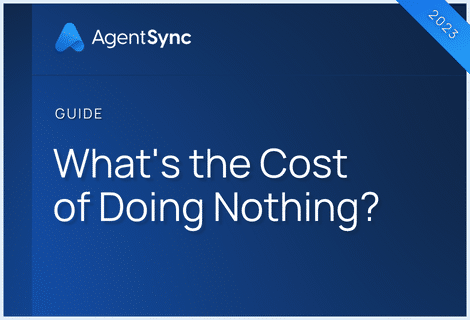

Sharity Ministries, a large health care sharing ministry (HCSM), is declaring bankruptcy and its holding and management company, Aliera, will stop signing up new members per a recent announcement from the Connecticut Commissioner of Insurance, Andrew Mais.
The deal hearkened back to a July episode on “Last Week Tonight” that covered HCSMs and their various disadvantages, where the show host specifically called out Sharity and its management company. Exploring the collapse of Sharity is not only an exercise in regulatory rubbernecking, it’s also a reminder that industry regulation serves the best interests of the social contract.
Last Week Tonight and insurance
Sharity announced its bankruptcy in July, not long after Sharity and Aliera both came under fire from that great name in insurance … John Oliver. OK, he may not be a great name in insurance, but John Oliver’s dry, profane British nonsense layered over a deep-dive fact check of this insurance phenomenon in a July edition of his HBO show, “Last Week Tonight,” was well-timed.
If you’re thinking “how can this happen in an industry that is so regularly regulated as insurance?”, you’re not the only one. But, as Oliver (also the voice of Zazu in the live-action film remix of Disney’s “The Lion King,” for those of you keeping track of our pop culture references) was quick to point out:
“The most important thing to know about health care sharing ministries, or HCSMs, isn’t just that they can be cheaper than health insurance – which they can – it’s that they are also not health insurance.”

And that’s the rub. Although HCSMs operate much like insurance in terms of pooling resources to pay the cost of healthcare events, they aren’t insurance, and they don’t provide guarantees with any backing, don’t base pricing off underwriting, and aren’t subject to the many federal and state regulations that govern health insurers.
“This past session, we heard both positive and negative testimony from customers that use health sharing ministries to cover their health care cost. These are not insurance products, but this certainly deserves our full attention to protect the public,” Connecticut State Representative Kerry Wood said in the state’s August news release.
What are HCSMs?
HCSMs aren’t health insurance. So what are they?
HCSMs are agreements amongst people who hold common values, often religious, and who agree to share the cost of their healthcare amongst their group. Yet, the safety nets that contribute to the solvency of health insurers and guarantee their claims-paying abilities don’t apply to HCSMs.
The reasoning behind these organizations is to allow members to share costs and, so the theory goes, by agreeing to lifestyle practices – such as avoiding tobacco, alcohol, and other drugs – or excluding people with pre-existing conditions, members may keep costs low.
Yet, the reality is that no matter how stringent a lifestyle is, genetics and environmental factors have quite a bit to do with health costs. Broken bones, burst appendices, and cancer don’t call ahead, and they don’t give you a list of contributing factors.
One major downside is also that HCSM marketing often leans into the idea that they are not insurance, but similar. This setup can lead consumers to conclude that HCSMs guarantee coverage, or that their similarities make them safer than they are.
HCSMs and the Affordable Care Act
The Affordable Care Act (ACA), aka Obamacare, set new standards for healthcare insurance meant to make insurance protections more robust for consumers. Yet, the tax penalties that pushed consumers to purchase insurance also presented a problem for communities that tend to live a bit off the grid, such as traditional Mennonite communities.
So, HCSMs were granted an exemption under the ACA. They didn’t count as ACA plans, but members could be exempt from individual mandate penalties. Of course, since the mandate penalty got set at $0, that hasn’t been relevant since 2018, but it matters for the context of why these plans got traction to begin with. HCSMs don’t have to follow the ACA’s coverage minimums, so they’re less expensive, and they have maintained a status as “better than nothing” for many participants who can’t afford actual health insurance but don’t qualify for subsidies.
For instance, a 64-year-old woman in Kansas pays $127 for her HCSM coverage. Granted, the coverage doesn’t pay for preventative health care like annual checkups, mammograms, and pap smears. It also comes with a limit on how much care she can receive before she is no longer eligible for coverage. Alternatively, the average healthcare plan for someone her age is $784.
Penalties against Sharity and Aliera
While Sharity (a dba of Trinity Healthshare Inc.) is now bankrupt, The Aliera Companies is registered as an insurance producer in the state of Georgia.
In April, under a consent order (where the companies disagreed with the state findings, but agreed to settle the matter amicably), Aliera and Sharity agreed with the state of Connecticut to:
- Stop selling memberships in Connecticut
- Notify members of the investigation
- Cover existing member costs
- Pay a combined $50,000 fine to the state
State findings included deceiving consumers into believing they had insurance coverage, and refusing to pay legitimate claims. Connecticut’s Commissioner Mais is not the first state insurance commissioner to take issue with HCSMs generally, or Sharity specifically: Aliera HealthCare was barred from offering plans in Pennsylvania in December 2019 and fined by that state in July this year for its work with Trinity Healthshare. And when Washington fined Aliera $1 million for operating unlicensed in the state and took action against Trinity for its operations, Insurance Commissioner Mike Kreidler had some strong words about the affair when the state won an appeal.
“Aliera and Trinity promised to provide people with coverage when they needed it only to leave consumers with huge medical bills,” said Kreidler. “I’m taking action today to send a message to all scam artists – if you harm our consumers, you will pay heavily.”
While a key distinction of HCSMs is in their not being licensed as insurance, Oliver’s amusing takedown serves to triple underscore that insurance regulation isn’t a laughing matter. Compliance with state insurance regulations often comes down to preventing consumers from being taken advantage of, especially when they’re compromised or vulnerable.
“Consumers should be careful when purchasing health insurance,” said Connecticut state senator Matthew Lesser in the state’s news release. “So-called ‘health care sharing ministries’ are unlicensed and there is little recourse available if one of these companies shuts down or refuses to pay a health care bill. If it sounds too good to be true, it probably is.”
If you’re working with an insurance-adjacent company that’s not actually insurance, we’re not able to do much for you, but for everything else (i.e., companies that need their i’s dotted and t’s crossed with producer license compliance), there’s AgentSync Manage, so book a demo with us to see what we are about.

